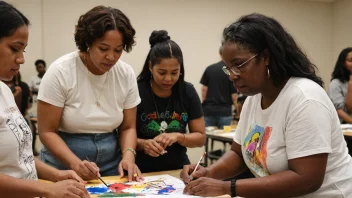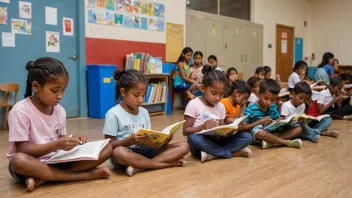In an increasingly globalized world, the ability to communicate in multiple languages is more essential than ever. Multilingual education is not just about learning new languages; it plays a vital role in literacy development and cognitive growth. This article explores the various benefits of multilingual education, emphasizing its significance in fostering literacy skills among learners.
One of the primary advantages of multilingual education is enhanced cognitive development. Studies have shown that individuals who are proficient in multiple languages tend to have better problem-solving skills, creativity, and critical thinking abilities. This is because learning different languages encourages students to think in diverse ways and approach problems from multiple perspectives.
Additionally, multilingual education supports literacy development by allowing students to draw connections between languages. When children learn to read and write in their native language while simultaneously being exposed to a second or third language, they are better equipped to understand complex linguistic concepts. This cross-linguistic awareness helps in the transfer of skills, enabling learners to become proficient in reading and writing in multiple languages.
Furthermore, multilingual education promotes cultural awareness and appreciation. By learning about different languages, students also gain insights into the cultures and histories associated with those languages. This cultural competence not only enriches their educational experience but also fosters empathy and understanding towards others, which is crucial in today’s multicultural society.
Parents and educators play a significant role in supporting multilingual education. Encouraging children to engage with different languages at home and in the community can reinforce what they learn in school. Simple practices, such as reading bilingual books, watching foreign films, or participating in language exchange programs, can make a substantial difference in a child's linguistic journey.
Moreover, multilingual education can be instrumental in closing the educational gap in underprivileged communities. By providing access to quality education in multiple languages, we can ensure that all children, regardless of their background, have the opportunity to succeed academically. This inclusivity is essential for promoting social justice and equity in education.
In conclusion, multilingual education is a powerful tool for enhancing literacy development, cognitive skills, and cultural awareness. By embracing and promoting multilingualism in educational settings, we can empower future generations to thrive in a diverse world. As individuals, we can support these initiatives through advocacy, community involvement, and by fostering a love for languages in our own lives.






